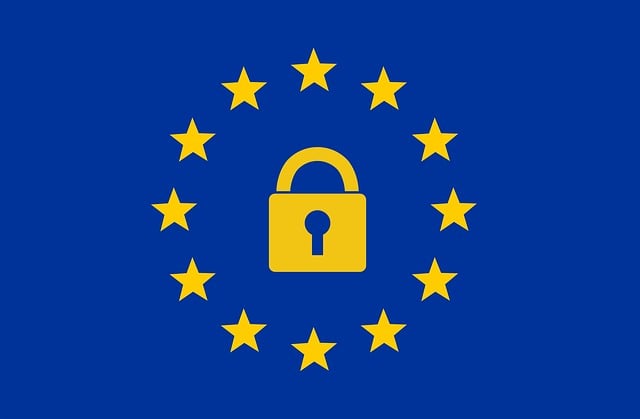Navigating University Regulations: Global Translations for Clarity
University Regulations and Policies are vital for academic institutions, governing operations, conduct, and integrity. A comprehensive guide demystifies rules with practical examples, directing users to resources. Professional translation services en…….

University Regulations and Policies are vital for academic institutions, governing operations, conduct, and integrity. A comprehensive guide demystifies rules with practical examples, directing users to resources. Professional translation services ensure inclusivity by accurately translating these documents, preserving context and nuances. Global compliance is ensured through meticulous drafting and interpretation, fostering a transparent and accountable culture. For international students, understanding local regulations is essential for success. Quality Assurance processes guarantee accurate translations, maintaining document integrity while respecting cultural contexts. Cultural sensitivity and accessible translations promote inclusivity in today's globalized academic landscape. Best practices ensure trustworthiness in handling sensitive information.
“Ensuring clear communication of university regulations and policies is vital for institutional integrity and student success. This comprehensive guide delves into the intricacies of accurate translations, highlighting their role in legal compliance, international student support, and cultural sensitivity. From understanding complex regulations to maintaining consistency across multi-language documents, discover best practices for trustworthy translations that facilitate global access to higher education. Learn how professional translators contribute to a seamless and inclusive academic environment.”
- Understanding University Regulations: A Comprehensive Guide
- Accurate Translations for Policy Clarity
- Ensuring Legal Compliance in Higher Education
- The Role of Professional Translators in Academia
- Navigating International Student Regulations
- Maintaining Consistency Across Multi-Language Documents
- Quality Assurance in University Policy Translation
- Cultural Sensitivity: Translating Educational Policies
- Global Access: Making Regulations Accessible
- Best Practices for Trustworthy Document Translations
Understanding University Regulations: A Comprehensive Guide
University regulations and policies are the cornerstone of academic institutions, providing a framework for operations, student conduct, and academic integrity. These documents are vital to ensure fairness, consistency, and clarity across the campus community. Understanding them is essential for both students and faculty members alike.
A comprehensive guide to university regulations and policies should demystify complex terminology, break down intricate rules into digestible sections, and offer practical examples of their application. It should also highlight resources available to help clarify any uncertainties, such as department heads, student affairs offices, or dedicated online portals. By empowering individuals with knowledge of these regulations, universities foster an environment of transparency, accountability, and mutual understanding.
Accurate Translations for Policy Clarity
Clear and accurate translations are paramount when it comes to university regulations and policies, ensuring that all students, faculty, and staff members understand their rights, responsibilities, and the rules they must adhere to. Misunderstandings can arise from poorly translated documents, leading to confusion, compliance issues, and even legal complications. Professional translation services specializing in academic language are essential to bridge this gap.
These services employ linguists with expertise in both the source and target languages, guaranteeing that university regulations and policies are faithfully represented. They go beyond simple word-for-word translations, capturing the nuances and context critical to effective communication. Accurate translations foster a more inclusive environment, empowering individuals to navigate their academic journey with confidence and ensuring everyone is on equal footing when it comes to understanding institutional guidelines.
Ensuring Legal Compliance in Higher Education
In the complex landscape of higher education, maintaining legal compliance is paramount for universities worldwide. University regulations and policies serve as the bedrock, guiding academic institutions in their operations and ensuring fairness, safety, and ethical conduct. These documents are not merely a collection of rules; they are legal frameworks that require meticulous drafting and interpretation to align with local laws and international standards.
Non-compliance can lead to significant legal repercussions, affecting the institution’s standing and potentially exposing it to liabilities. Therefore, trusted translations of university regulations and policies are crucial for institutions with diverse student bodies and staff from different linguistic backgrounds. Accurate translations ensure that every stakeholder understands their rights and responsibilities, fostering a compliant and inclusive academic environment.
The Role of Professional Translators in Academia
In the academic realm, precise and trusted translations are paramount, especially when dealing with university regulations and policies—documents that guide students’ and staff members’ experiences. Professional translators play a crucial role in ensuring these vital academic resources are accessible to all. Their expertise goes beyond language proficiency; they possess a deep understanding of terminologies specific to higher education, enabling them to convey complex ideas accurately.
These professionals not only bridge the communication gap between diverse linguistic backgrounds but also maintain the integrity and context of University Regulations and Policies during translation. By adhering to academic standards, they facilitate seamless navigation for international students and faculty, ensuring equal access to information that significantly impacts their educational journeys.
Navigating International Student Regulations
Navigating international student regulations can be a complex task, especially for those new to the academic landscape abroad. Every university has its own set of rules and guidelines that students must adhere to, ensuring a smooth and compliant educational journey. These University Regulations and Policies cover various aspects, from academic integrity and conduct to visa requirements and health insurance. Understanding these policies is crucial for students to avoid any legal or administrative pitfalls.
For instance, international students must be aware of the specific rules regarding attendance, academic cheating, and plagiarism, as they may differ significantly from their home countries. Additionally, visa regulations and healthcare provisions are essential areas to explore, ensuring students are well-prepared to meet these requirements. Effective communication with the university’s international student office or relevant departments is key to demystifying these regulations and providing clarity on expectations.
Maintaining Consistency Across Multi-Language Documents
Maintaining consistency across multi-language university regulations and policies is a critical challenge. When documents are translated, it’s essential to ensure that the meaning, structure, and tone remain identical across all languages. This requires not just skilled translators but also meticulous proofreaders who understand the nuances of both legal language and cultural context. Every term, phrase, and instruction must be handled with care to avoid misinterpretations that could lead to confusion or compliance issues.
Consistency is achieved through rigorous quality assurance processes, including back-translation, where a native speaker in the target language reviews the translation against the original document. This ensures not only linguistic accuracy but also conceptual fidelity, guaranteeing that the spirit of the university regulations and policies is preserved in every language version.
Quality Assurance in University Policy Translation
Ensuring accurate and reliable translations of university regulations and policies is paramount for international students and faculty. Quality Assurance (QA) processes play a pivotal role in maintaining the integrity of these documents, guaranteeing they convey the exact meaning intended by the original drafters.
These rigorous QA measures involve multiple layers of scrutiny, including linguistic expertise to capture subtle nuances and cultural context. Professional translators with specialized knowledge in academic terminology and legal phrasing are crucial for this task. Furthermore, peer review and back-translation services enhance accuracy by subjecting drafts to fresh perspectives. This comprehensive approach ensures that translated university regulations and policies remain true to their source material, fostering a seamless experience for the global academic community.
Cultural Sensitivity: Translating Educational Policies
When translating university regulations and policies, cultural sensitivity is paramount. Education systems and cultural norms vary widely across countries, and what constitutes acceptable behavior or mandatory procedures can differ significantly. A direct translation may not capture these nuances, potentially leading to misinterpretations among students and faculty from diverse backgrounds.
Therefore, professional translators specializing in education must be adept at navigating these complexities. They should have a deep understanding of both the source and target cultures to ensure that translated documents accurately reflect the intended meaning and comply with local educational standards. This involves not just rendering words but also adapting phrases and concepts to be culturally relevant and accessible to the intended audience.
Global Access: Making Regulations Accessible
In today’s globalized academic landscape, ensuring accessibility of university regulations and policies is more important than ever. With students and faculty coming from diverse linguistic backgrounds, accurate and trusted translations play a pivotal role in fostering inclusivity. Trusted translation services bridge the language gap, making essential university documents understandable for all stakeholders, regardless of their native tongue. This not only enhances transparency but also promotes equal opportunities for participation and adherence to institutional guidelines.
Global access requires meticulous handling of complex terminology specific to academic regulations. Professional translators with expertise in higher education are crucial to maintaining precision and cultural sensitivity. By leveraging advanced translation technologies and human expertise, universities can guarantee that translated documents remain faithful to the original intent and meaning. This, in turn, facilitates seamless navigation through university policies for students, faculty, and staff from around the world.
Best Practices for Trustworthy Document Translations
When it comes to translating university regulations and policies, accuracy is paramount. To ensure trustworthiness, several best practices should be followed. Firstly, engage professional translators who are fluent in both the source and target languages, with a deep understanding of legal terminology specific to higher education institutions. This minimizes errors and maintains the intended meaning. Secondly, provide comprehensive context and reference materials to the translators. This includes previous translations, relevant legislation, and institutional guidelines, allowing for a more precise adaptation.
Additionally, consider using translation memory tools that store previously translated terms and phrases, ensuring consistency throughout the document. Peer review is another critical step; have experts in the field scrutinize the translated documents to catch any nuances or inaccuracies. Finally, stay updated with industry standards and regulations governing translations, especially when dealing with sensitive university policies that impact international students and staff.
University regulations and policies are vital documents that ensure institutional integrity and legal compliance. Accurate translations of these documents, especially in diverse academic settings, are crucial for international students’ success and fairness. Professional translators play a critical role in navigating language barriers, maintaining consistency, and upholding cultural sensitivity. By following best practices and adhering to quality assurance standards, institutions can provide trustworthy translations that facilitate global access to university regulations and policies.




